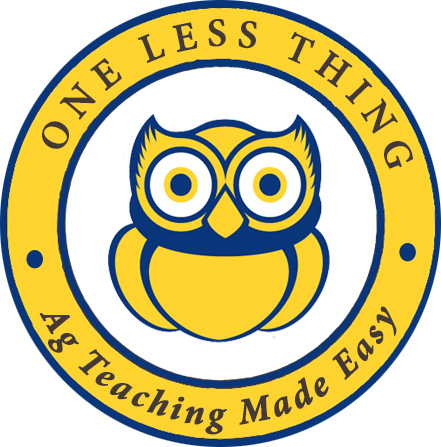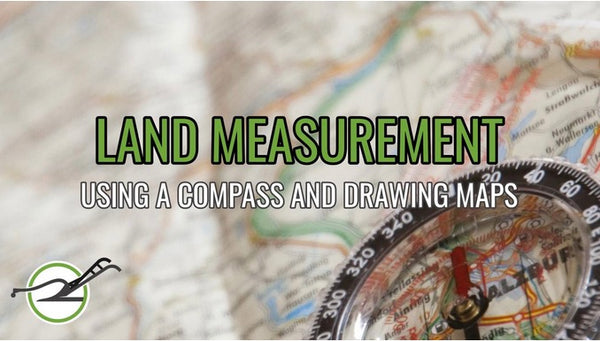The Cost of Zero Tolerance In Your Chapter
This week, I was reminded of a story I heard several decades ago as a high school senior. At the small Georgia high school I attended, a former teacher retold the story of a student in her club, not an FFA Chapter mind you but stick with me. The young lady was an officer but was in a relationship and ended up pregnant. It was the south, the late 1970's to early 80's, and the belief was this young lady's actions did not represent the beliefs of that club and she was ultimately excluded as a member.
Fast forward 15-20 years to my senior year in high school in the mid 90's. This story was told to me because a similar situation was taking place in my FFA chapter. There was a great deal of consternation and concern of what should happen to this young lady, my classmate, and talk ran rampant through the rank and file of our chapter. I will never forget what this teacher said to us. Now, many years later, she realized that what they did to that yout lady was wrong. The club was wrong for excluding her. Why? We asked. She replied, "We believed what she did ran contrary to our southern and religious values as well as the purpose of our club. She went against what we knew to be true as proper behavior. However, she simply made an error in judgement. She needed us more afire that error, as a pregnant single mother, than she had prior to becoming pregnant. Yet we turned our back on her. She needed the support of our club members and the influence of our values more than ever. How can we say we have such wonderful values and then turn our back on someone when she needed our guidance the most?" I remain humbled to this day by her comments.
As advisors of chapters, officer teams, and CDE students we have to remember that we teach children, not minature adults. Judgement, risk assessment, and controlling emotions are still very new concepts to our students. This includes our "good" students and even "our kids" who we see more than our families. Their bad judgement is not a reflection on you, your chapter, their family, or the school. It was bad decision. They are learning to be adults and will, undoubtedly, make bad choices. You, nor their family, can not control a student's personality but you can steer them in the best direction possible. However, you can't do that if there is a blanket policy to remove students who violate a cookie cutter code of behavior or a panel of their peers. Students don't mature at the rate we want and they certainly don't understand how detrimental their mistakes are for them in the future, but in most cases you can work through what they did wrong and they can grow from it.
We all know that often we learn more from failure than from success. Yet, we only punish when student failures break policy and fail to take the time to assess what happened and find a way to steer the student in the right direction. Where does that leave the student? Often, it's with what they know which is (a) they did a bad thing and (b) they got in trouble for it, but they pay a price of permanent exclusion for a single action. How can they grow from exclusion? If we truly believe the phrase that "FFA makes a positive difference in the lives of students by developing their potential for premier leadership, personal growth and career success through agricultural education," then we should be able to continue to make an impact on the life of that student even after the mistake. Granted there are some mistakes that are just too big for a student to overcome, but for those mistakes where the justice system isn't involved and the welfare of the fellow students isn't in question can we allow our students to live life with our guidance and support? I know too many law enforcement officials, business executives, and even teachers that made some very poor choices as students yet managed to find their place in the world and make a positive difference in their community to believe that one bad decision determines the ultimate path for a teenager.
Many of these students have yet to experience an adult, including their parents, who truly requires them to be responsible to the point where the adult trusts them. That's a big role for an Ag teacher, but that's what Ag education is all about. Teaching responsibility, building trust, growing them as students, and ultimately finding success in class, CDE's, and SAE's. We must remember that mentor is a verb too, not just a noun. We must remain a guiding voice in the lives of our students through both accomplishment and failure. Don't get me wrong, I am not asking for any of us to micromanage our students, far from it. In fact, I want us all to stay as far from micromanagement as possible. As adults we all have a certain set of values that we live by and we pass these values down to our students through our words and actions. With our values we can regularly point our students in the right direction, but they must walk the path themselves. That is the only way they can grow.
Actually, we grow too by learning to watch, listen, encourage, and congratulate and not just continually brow beat and harp on our students. As I've mentioned in other blog posts, we don't choose our students. Instead they students choose us. They choose us as leaders, mentors, and advisors. Assume only that they got once choice right, they chose you. Now the hard work starts where you teach them the value of being responsible and how to develop a trusting teacher/student relationship. Congratulate as often as you correct and encourage twice as much as those two combined. You are now their biggest fan and don't let policy get in the way of developing your students for the future they have ahead of them.
I am not getting enough feedback. Here, Facebook, or send me an email. Forget oxygen, it's my bread and water. I would really like your perspective. Come find us on Facebook, Pinterest, and Twitter. Send us your Facebook, Twitter, and Pinterest, and now Snapchat (oltaged) handles and we'll be glad to follow you as well. You can also contact me at brian@onelessthing.net. Feel free to jump over to the store side of our website at www.OneLessThing.net



